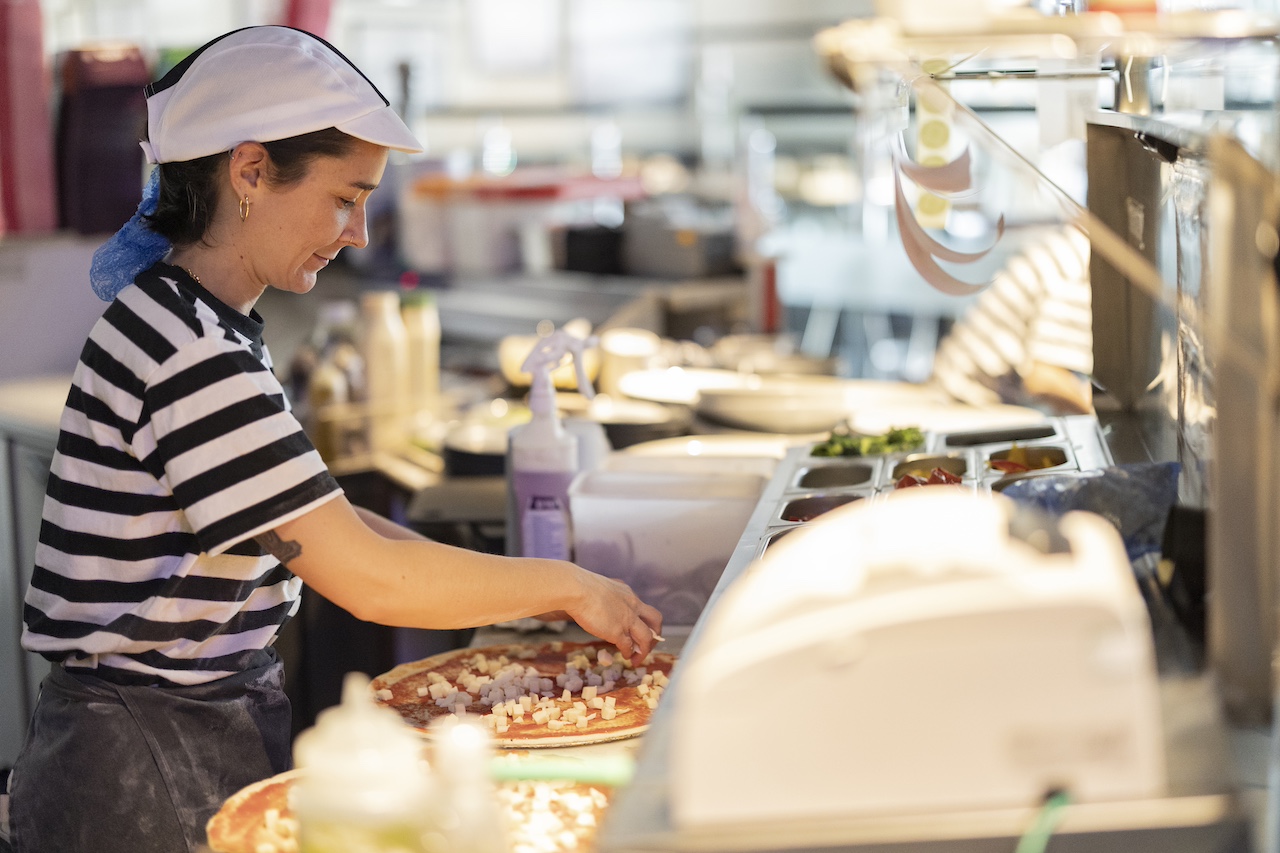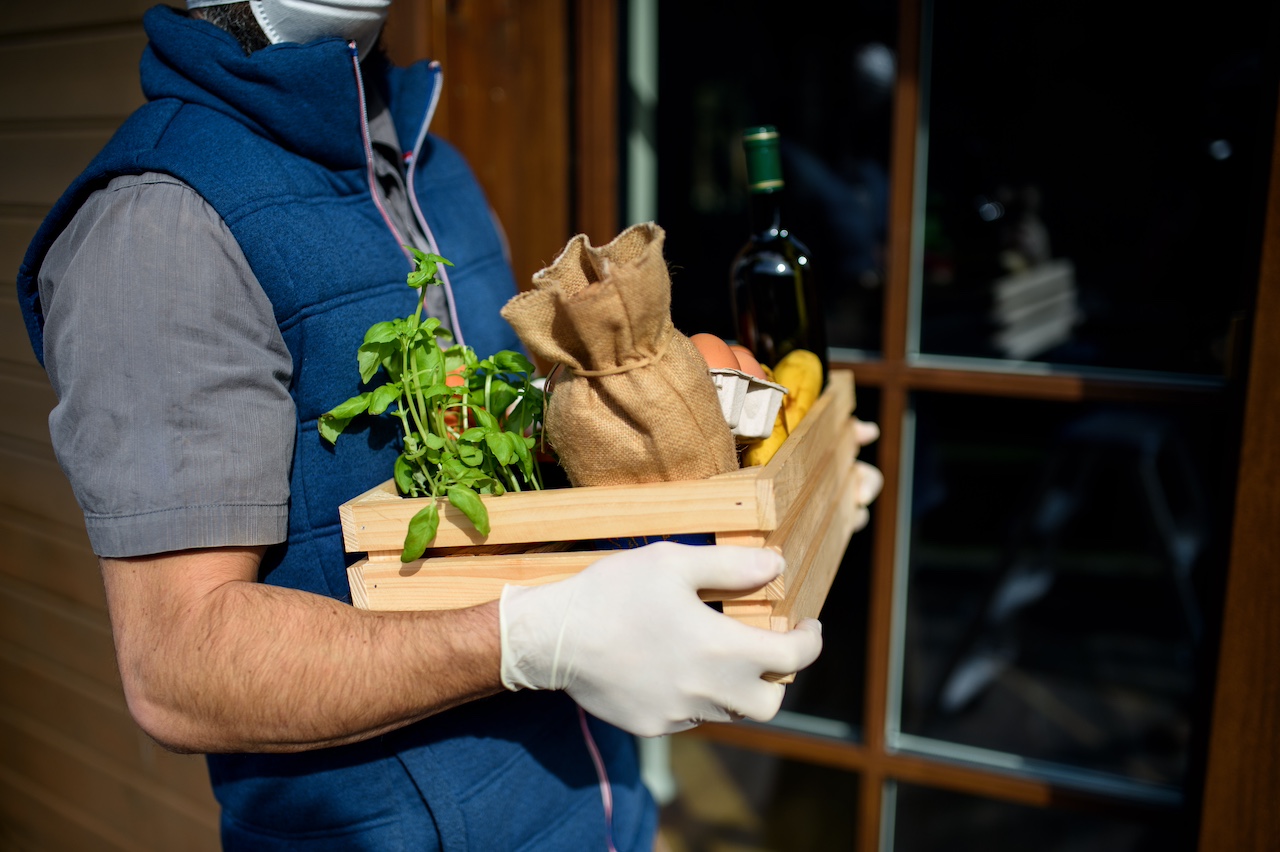Are you a fast-food franchisee or franchisor? Then you're faced with the daily challenge of a supply chain. Between product standardization, multi-site inventory management, cost control and the guarantee of impeccable quality, the supply chain is one of the strategic pillars of your business.
This article gives you concrete tips on how to simplify and optimize your fast-food restaurant's supply chain, because good organization makes all the difference in the field!
Structuring a high-performance supply chain network
Fast-food chain sales have surged 33% in five yearsThis sustained growth is putting pressure on the supply chain. To keep pace with this growth without compromising product quality or profitability, your supply chain needs to be efficient, agile and adapted to your franchise model.
Choosing between centralized and local sourcing
Centralized purchasing is often the norm in franchising. By grouping purchases via a single supplier or a pool of approved suppliers, you can achieve significant economies of scale, reducing your costs and boosting your profitability.
This is how the emblematic fast-food chain McDonald's works. It centralizes its purchasing to guarantee product quality and consistency, and control prices. This approach also facilitates negotiations with suppliers.
But beware, local sourcing can also have its advantages, especially for certain fresh or regionally specific ingredients. Local sourcing promotes freshness, reduces carbon footprints and can meet a growing demand from consumers sensitive to product origin.
According to a study by Agence BIO, 43% of French people rank the purchase of local products or products from short distribution channels among their top three priorities when it comes to food. A strong signal to take into account in your purchasing choices.
The right compromise? A mixed strategy: centralize standard products (bread, sauces, packaging) and use local suppliers for fresh produce.
Standardize products and processes
One of the challenges facing franchises is to offer customers a consistent experience, no matter which outlet they visit. To achieve this, products must be standardized.
This means choosing suppliers who comply with strict specifications, with precise recipes and clear processes. This standardization reinforces the identification of your brand by consumers, and also facilitates team training and stock management for multi-site operations.
👉 F urther information : Restaurant: 5 tips for managing supplies
Control purchases, inventory and costs
Finding the right balance between centralized purchasing, multi-site management and margin control can be tricky, but it's essential if you want to keep your network running efficiently.
Set up profitable group purchasing
Group purchasing is an effective way of controlling costs. By pooling orders, you can negotiate lower prices, reduce delivery costs and simplify administrative management.
Specialized platforms even offer tools for managing group purchases between franchisees. This is a good way to avoid each outlet making its own isolated purchases, which are often more expensive and less efficient.
Multi-site inventory management: methods and tools
Inventory management in franchising is a real headache. I'm sure you know all about it. Each site needs to be supplied at the right time, avoiding overstocking which leads to losses, and out-of-stocks which frustrate consumers.
Here, digital tools make a real difference: inventory management software, mobile applications, automatic alerts - these technologies enable real-time monitoring of incoming and outgoing goods, and anticipation of orders.
Our advice: adopt a centralized inventory management system accessible to all franchisees. This facilitates coordination and avoids errors.
Reduce losses and optimize margins
Food waste is a major issue in the catering industry. Fortunately, by effectively organizing your supply chain, you can reduce this harmful loss for your restaurant and for the planet.
For example, by adjusting the frequency of deliveries according to the actual consumption of each outlet, or by adding value to unsold goods through alternative recipes.
👉 Going further: 6 tips for developing your restaurant franchise concept

Optimizing logistics and distribution flows
As your network grows, logistics quickly become a headache. By improving the organization of flows, you can avoid delays, shortages and stressful moments in the kitchen.
Choosing the right logistics model
Depending on the size of your network, you can choose from several logistical models:
- Direct delivery from suppliers to franchisees
- Reduced delivery times ;
- Fewer intermediaries means lower costs;
- Suitable for small franchises with few references;
- Greater flexibility to respond quickly to the specific needs of each sales outlet.
- Reduced delivery times ;
- Distribution center that receives, stores and repackages products
- Optimize logistics flows by pooling orders;
- Reinforced quality control before delivery to points of sale;
- Centralized inventory management facilitates management and planning;
- Better negotiation with suppliers thanks to high volumes;
- Reduced transport costs through grouped delivery.
- Optimize logistics flows by pooling orders;
- Regional logistics platform
- Geographical proximity for faster, more frequent deliveries;
- Lower transport costs and reduced carbon footprint;
- Better management of fresh and fast-moving products;
- Suitable for medium-sized to large networks with specific regional needs.
- Geographical proximity for faster, more frequent deliveries;
The advantages of each model should be prioritized according to the size and priorities of your network.
Defining the responsibilities of the franchisee and franchisor
In a franchise, responsibilities must be clearly defined. Who organizes deliveries? The franchisor or each franchisee?
A clear framework avoids duplication, delays and conflicts. For example, the franchisor can take care of the main logistics and leave the last few kilometers to the franchisees.
Reducing logistics costs: where to act?
Transport costs are a heavy burden. To reduce them, consider optimizing delivery rounds, pooling shipments between nearby sites or choosing regional suppliers to limit distances.
👉 To find out more : Becoming a franchisee in 2025: 8 key steps to a successful project

Securing quality, traceability and compliance
Guaranteeing quality and compliance means protecting your brand, reassuring your customers and avoiding many regulatory worries.
Guaranteeing the traceability of food products
In the fast-food franchise sector, traceability is crucial. Every batch must be traceable from supplier to point of sale. This guarantees food safety and enables rapid reaction in the event of a problem.
Digital tools facilitate this traceability, automatically recording information on batches and dates.
Compliance with health and legal standards
Compliance with HACCP standards and local regulations is also imperative. The franchisor has a duty to support franchisees through regular training and audits.
It also reassures customers about product quality and safety.
Digitizing the supply chain for greater reliability
Digitalization is a powerful ally. With inventory management software, online purchasing platforms, logistics tracking tools and mobile applications, it makes the supply chain more fluid.
This gives us a global view, enabling us to anticipate disruptions and standardize processes in real time.
Franchisors and franchisees, stop seeing your supply chain as a constraint, and see it instead as a tremendous opportunity to optimize your costs, product quality and customer satisfaction. By opting for intelligent centralization, standardizing products and digitizing supply chain management, you can ensure the success and longevity of your network.
-
Would you like a helping hand to digitize and easily manage your supply chain? Contact our Innovorder experts, who will present you with solutions tailored to fast-food franchises.







